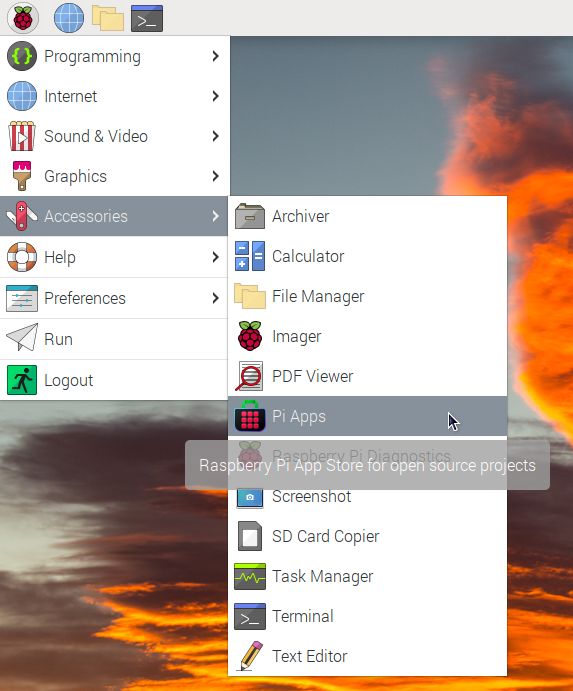Install  Bambu Studio on
Bambu Studio on  Raspberry Pi
Raspberry Pi
 Bambu Studio
Bambu Studio
Optimized 3D slicing software for BambuLab and other printers
This is based on PrusaSlicer, but brings project-based workflows, more features, and better default presets.
This will not render the 3D models as smoothly as Cura will, as it is a flatpak running under xwayland.To run: Menu -> Graphics -> BambuStudio
To run in a terminal: flatpak run --command=entrypoint --file-forwarding com.bambulab.BambuStudio
Fortunately, Bambu Studio is very easy to install on your Raspberry Pi in just two steps.
- Install Pi-Apps - the best app installer for Raspberry Pi.
- Use Pi-Apps to install Bambu Studio.
Compatibility
For the best chance of this working, we recommend using the latest version of Raspberry Pi OS, which is currently version Bookworm.
Raspberry Pi OS has 32-bit and 64-bit variants, both of which will run on most Raspberry Pi computers, including the Pi 3, Pi 4, and Pi5.
Bambu Studio will only run on PiOS 64-bit. Pi-Apps will not let you install Bambu Studio on PiOS 32-bit.
Install Pi-Apps
Pi-Apps is a free tool that makes it incredibly easy to install the most useful programs on your Raspberry Pi with just a few clicks.
Open a terminal and run this command to install Pi-Apps:
wget -qO- https://raw.githubusercontent.com/Botspot/pi-apps/master/install | bashFeel free to check out the Pi-Apps source code here: https://github.com/Botspot/pi-apps
Install Bambu Studio
Now that you have Pi-Apps installed, it is time to install Bambu Studio.
First launch Pi-Apps from your start menu:

Then click on the Engineering category.

Now scroll down to find Bambu Studio in the list.
![]()
Just click Install and Pi-Apps will install Bambu Studio for you!
Pi-Apps is a free and open source tool made by Botspot, theofficialgman, and other contributors. Find out more at https://pi-apps.io